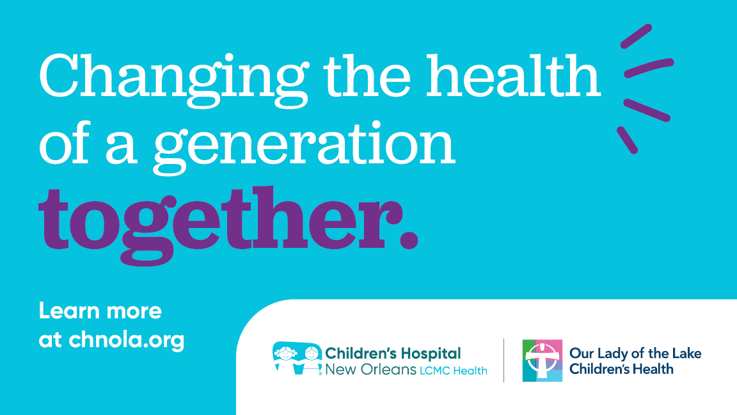Nurturing positive body image: Empowering your teens against negative self-talk
- Category: General Health, Living Well, Mental Health, Keep Kids Well
- Posted on:
- Written By: Allegra Hartman, LCSW-BACS, Inpatient Behavioral Health Program Coordinator

In today’s digital age, the issue of negative body image, especially among teens, has become increasingly prevalent. The age at which young minds encounter these concerns seems to be getting younger, with children as young as eight or nine grappling with the pressures of how they perceive their own bodies.
The way we think and feel about ourselves can have a dramatic impact on how we behave towards ourselves and others. Body image is a perception of how an individual sees themselves. It focuses not only on how they feel about themselves but also how they experience day-to-day life within their body. Body image can be both positive and negative and it is important to be aware that it does not develop in isolation. Many adolescents receive positive and negative images about their body from a young age.
The roots of these struggles often trace back to internal and external influences. Negative body image can be influenced by factors including peer pressure and perceived expectations (not feeling “good enough”), your family environment which includes messages received from childhood about how you should look or present yourself, self-esteem, and underlying mental health issues such as depression and anxiety. Further complicating matters, the media also play a significant role, disseminating distorted ideals of beauty and perfection through platforms like social media, television, movies and magazines.
Several signs of negative body image are lack of confidence, feeling uncomfortable in your own skin, constantly comparing yourself to peers and feeling like you need to change your physical appearance to meet societal expectations of beauty. Positive body image relates to body satisfaction and acceptance where people do not allow external concerns about appearance to inhibit them from living their life.
As a parent or guardian, you play a pivotal role in providing a solid foundation of self-worth for your teens and ultimately guiding them towards a healthier body image and a more positive self-concept.
Five things you can do to promote positive body image and combat negative self-talk
Abstain from negative conversations – As a parent, you are a role model and guide for your teenagers. If they hear or witness you speaking poorly about yourself, they are likely to mimic this behavior. It is imperative that parents are aware of their own physical and emotional insecurities. If these go unaddressed, adolescents will likely follow in engaging in similar behaviors. Set a good example. Encourage a balanced lifestyle that emphasizes overall health and wellbeing. Rather than complimenting your teenager on their physical appearance, consider complimenting styles, personalities, their general outlook on life, and individual choices (“that outfit is so you!”, “I love hearing your laugh” or “you are very brave”).
Limit negative media influence – While it may be difficult to pull the phone away from your teenager, try and set aside times to have open and honest conversations about what they are being exposed to. Remind your teenager that much of the content (whether it be online, movies, advertisements etc.) is highly curated, edited and filtered to look as flawless and appealing as possible. Media often portrays false environments with unrealistic ideals. However, many adolescents are prone to believe that these environments or ideals are normal and attainable. Reassure your teenager that taking a ‘break’ or a breather from social media is okay. Studies have shown that even taking a one-week hiatus from social media leads to significant improvement of an adolescents overall wellbeing.
Practice gratitude – Encourage your teenager to write down three to five things they’re grateful for at the beginning or end of each day. These things do not have to be big, in fact, the smaller the better. Simple things like speaking with a close friend, listening to your favorite song, or simply waking up are examples. When people choose to practice gratitude daily, two things happen in terms of body image. Firstly, being grateful takes the negative focus off your physical body. When you're forced to consider and reflect on the good things in your life, you have less room for negative thoughts.
Pay attention to their inner dialogue – Be mindful of how your teenager talks to and about themselves. If you find that they’re speaking poorly about themselves, ask them if they would talk the same way to a friend that they cared about. Have a conversation with your teenager asking them to identify traits that make them unique.
Make sure to celebrate your teenager - encourage your teen to be mindful of what their bodies are capable of doing on a daily basis (laughing, walking, breathing). Remember that focusing on the function of one’s body is more important than appearance. Acknowledge that your teenager is doing their best. Remind them that no one is perfect and that they are enough.
Lastly, do not hesitate to seek professional help. Cultivating strong self-esteem, self-love and confidence are lifelong journeys. Like most things in life, the way you feel about yourself can ebb and flow. Therapy can help rebuild an individual’s self-image and provide a supportive and safe space for difficult emotions and distorted cognitions to be explored.
To learn more about Mental and Behavioral Services at Children’s Hospital New Orleans, visit:
Mental and Behavioral Health Services | Children's Hospital New Orleans (chnola.org)



